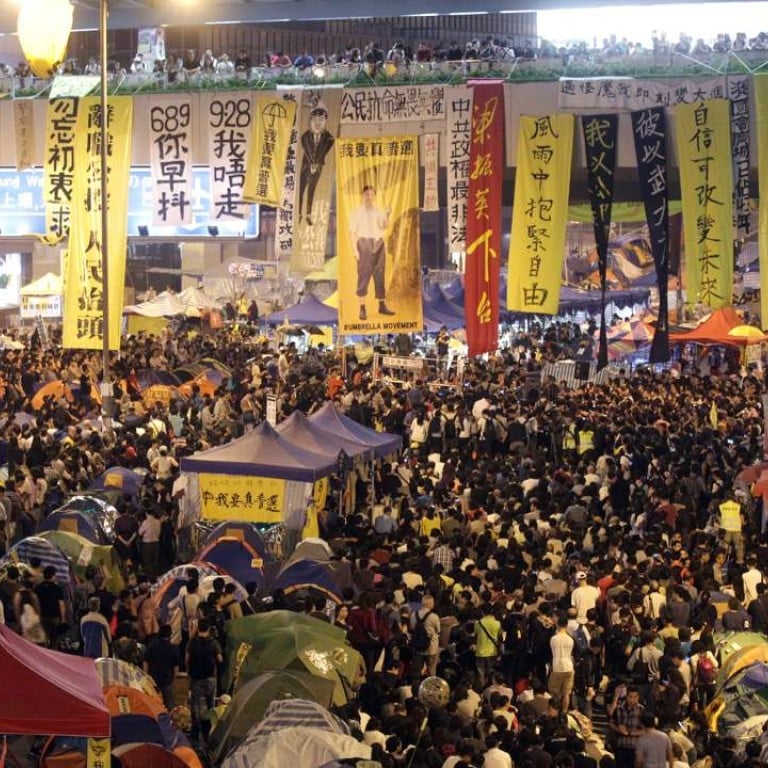
U-turn as Occupy amnesty call by Hong Kong Democratic Party chairman flops
Wu Chi-wai retracts suggestion, which came under fire from all sides, saying it had ‘not gone through careful consideration’
Democratic Party chairman Wu Chi-wai on Tuesday night retracted his call for a legal amnesty for those involved in the 2014 Occupy protests, both activists and police, after opposition from all sides.
Wu, who had argued the move could help achieve reconciliation between the government and the pro-democracy bloc, apologised for his contentious remarks.
“The suggestion has not gone through careful consideration as well as detailed discussion within the Democratic Party and the pan-democratic camp,” he said.

He also called on Lam to set up an independent commission to assess the reasons for the Occupy movement and suggest ways to mend the rift in society.
Mending the city’s social and political rift was a key part of Lam’s election platform.
But when asked about Wu’s recent comments, the incoming leader’s office declined to comment.
However, the call by Wu failed to even win the support of those in his own party.
Fellow lawmaker Hui Chi-fung disagreed with the call for amnesty, saying it contradicted the rule of law.
“The origin of the social rift is not the Occupy movement, but the public’s distrust of the undemocratic government,” he added.
Civic Party leader Alvin Yeung Ngok-kiu, who initially backed the suggestion, later changed his mind in the wake of pressure from colleagues.
“I am sorry if my words have caused any misunderstanding. I disagree that the rule of law could be used for any political exchange,” he said.

He said the best way or the government to achieve reconciliation was for the government to launch a political reform consultation without conditions.
Legal sector lawmaker Dennis Kwok, of the Civic Party, said: “It is too early to discuss an amnesty as many cases are still under legal proceedings.”
Labour Party lawmaker Fernando Cheung Chiu-hung also disagreed with Wu, saying it was inappropriate to put activists on a par with police who had broken the law by harming others.
Demosisto chairman Nathan Law Kwun-chung was equally scathing. “The idea of reconciliation is merely illusory should the government refuse to rectify their mistakes.” he said.
In the pro-establishment camp, Starry Lee Wai-king, chairwoman of the Democratic Alliance for the Betterment and Progress of Hong Kong, said an amnesty would signal that illegal means were acceptable.
Police Inspectors’ Association chairman Jimes Lee Jim-on described the idea as “deplorable”.
“It would be a fatal blow to the city’s judicial independence and system,” he said.
“No matter it is about the seven policemen or any other Occupy participants, we should let the judges decide if their acts are right or wrong. We should respect the court.”

